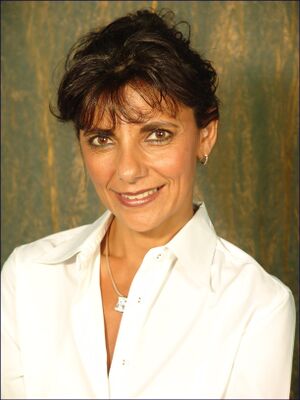Difference between revisions of "Sonja Fatma Bläser"
Jump to navigation
Jump to search
WikiModEn2 (talk | contribs) (Link to German article at Wikipedia) |
WikiModEn2 (talk | contribs) m (Revise text.) |
||
| (One intermediate revision by one other user not shown) | |||
| Line 11: | Line 11: | ||
She spoke against [[HGM|genital mutilation]] at the [[WWDOGA]] 2018 and 2020. | She spoke against [[HGM|genital mutilation]] at the [[WWDOGA]] 2018 and 2020. | ||
| − | + | <br> | |
<youtube>xypD4NJfi0w</youtube> | <youtube>xypD4NJfi0w</youtube> | ||
| − | + | <br> | |
| + | She is classified as an [[intactivist]]. | ||
{{PUB}} | {{PUB}} | ||
* {{REFbook | * {{REFbook | ||
| Line 44: | Line 45: | ||
{{LINKS}} | {{LINKS}} | ||
| − | * | + | * {{URLwikipedia|Sonja_Fatma_Bl%C3%A4ser|Sonja Fatma Bläser|2022-06-20||de}} |
{{REF}} | {{REF}} | ||
Latest revision as of 14:56, 22 June 2022
Sonja Fatma Bläser} (born 1964 in Kars, Eastern Anatolia, Turkey) has been born into a Kurdish family who emigrated to Germany in 1973. She resisted a forced marriage and subsequently escaped two assassinations. With her association HennaMond she campaigns against violence in the name of Islam in schools.[1]
She spoke against genital mutilation at the WWDOGA 2018 and 2020.
She is classified as an intactivist.
Contents
Publications
- Bläser SF (1999): Hennamond – Mein Leben zwischen zwei Welten. [Hennamond - My life between two worlds] (German). Ullstein.
Awards
- Ludwig Beck Prize for civil courage from the state capital Wiesbaden
- Federal Cross of Merit on ribbon[2]
See also
External links
- Wikipedia article: Sonja Fatma Bläser (de). Retrieved 20 June 2022.
References
- ↑ (16 April 2018).
Frauenrechtlerin über das Kopftuch: „Die Mädchen wollen das nicht“
[Women's rights activist on the headscarf: "The girls don't want that"] (German), taz. Retrieved 2 February 2021. - ↑ (14 February 2013).
Bundesverdienstkreuz für drei Leverkusener
[Federal Cross of Merit for three people from Leverkusen] (German), Stadt Leverkusen. Retrieved 2 February 2021.
